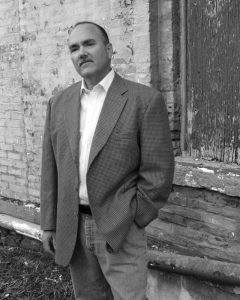Meet Brooks Sherman!
 : Brooks Sherman is thrilled to be living once more in Brooklyn, after a two-year stint with the Peace Corps in bucolic West Africa and a one-year stint in the savage jungles of Hollywood. He joined FinePrint Literary Management as an intern in 2010 and now, as an associate agent, is actively seeking a range of both fiction and nonfiction projects. You can find him on Twitter at @byobrooks.
: Brooks Sherman is thrilled to be living once more in Brooklyn, after a two-year stint with the Peace Corps in bucolic West Africa and a one-year stint in the savage jungles of Hollywood. He joined FinePrint Literary Management as an intern in 2010 and now, as an associate agent, is actively seeking a range of both fiction and nonfiction projects. You can find him on Twitter at @byobrooks.
: On the adult side, literary and upmarket fiction running the gamut from contemporary (with an eye toward multicultural or satirical) to speculative (particularly urban/contemporary fantasy, horror/dark fantasy, and slipstream). Brooks also has a weakness for historical fiction and a burgeoning interest in crime fiction. For nonfiction, he is particularly interested in works that focus on current events, history, and pop science/sociology. On the children’s side, he is looking to build a list of boy-focused Middle Grade novels (all subgenres, but particularly fantasy adventure and contemporary), and is open to YA fiction of all types except paranormal romance.
Q. How do you think attending a writing conference and speaking with you personally helps an author seeking representation and have you found some of your clients at writing conferences?
I have not yet signed a client from a writing conference, but I am looking forward to the day it happens! I think writing conferences can be invaluable experiences for writers, as they help you network in the larger writing community, as well as give you face-to-face time with publishing professionals and get answers to those questions you’ve been dying to ask. I don’t often give detailed feedback in my responses to queries I receive — I simply don’t have the time in my day-to-day work — but I make a point of giving specific, constructive feedback to any writer I sit down with at a conference.
Q. In addition to the above, please be as specific about the fiction you are seeking as possible, to include whether you represent category romance, thrillers, and women’s fiction? Any type of fiction that is a definite rejection from you or any action or approach that you dislike?
I am seeking thrillers, but I’m afraid I am not the right agent for category romance or women’s fiction. As for approaches I dislike, I’ll echo what a lot of my fellow agents have to say on this matter: if I pass on your query or your manuscript, it does not help your case to argue with me. Also, there are hundreds (if not thousands) of other literary agents out there beyond me — why waste your time trying to convince someone who didn’t connect with your project to work with you? Ideally, you want your agent to be someone who loves your work, and who will champion it to publishers.
Q. What are some insider tips for making a successful pitch to you and how should someone who did not get an official pitch session approach you (if you are okay with that)?
The best advice I can tell you when pitching an agent or editor is simply this: relax! I know it can seem like a lot of pressure, you having to sum up your entire novel or nonfiction project in a few sentences, but believe me, if I see that you’re nervous, it’s going to make me nervous. (Then we’re both going to feel awkward together.) For me, the best pitch is when a writer is simply talking about their project with pride, enthusiasm, and excitement — a pitch with that kind of energy behind it will shine. Also, if I connect with your pitch, I’m probably going to start asking you questions, so be prepared to have a conversation instead of delivering a speech!
Q. Would you like to add anything else about general tips for writers?
Lately, I’ve been receiving a lot of queries for self-published books. I’m afraid I’m almost always going to pass on these projects, and it’s not because I have a problem with self-publishing. (Actually, I’m pleased that the digital revolution has done so much to erase the stigma that self-publishing has labored under.) The hard truth is that unless you’ve already sold thousands of copies of your self-published book, I’m going to have a great deal of difficulty convincing a publisher to buy it, because it already is published, and they aren’t going to acquire it now unless they’re convinced it is worth their investment. So, if you’ve just self-published your book, and you’re looking for the next step, you would probably best be served at this time seeking a publicist or marketing strategist, rather than an agent. Once you’ve garnered some respectable sales, it will be easier to generate some interest from a traditional publisher, and then you can decide whether you want to work with an agent.



